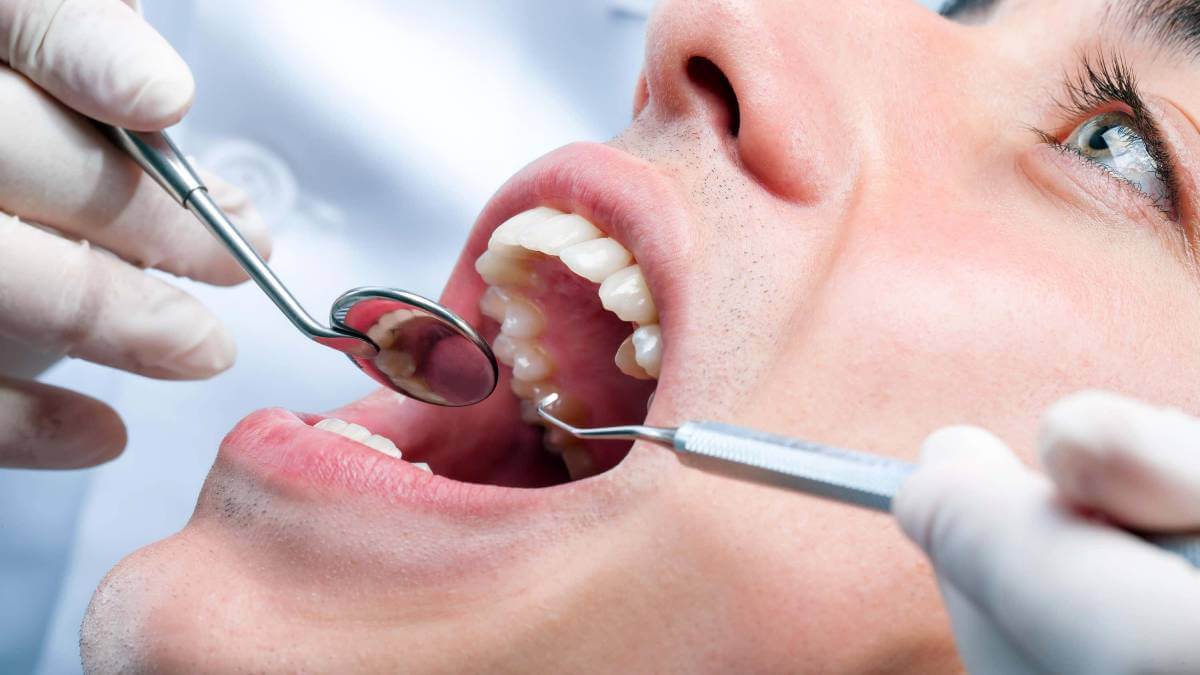Our mouths are a window to our overall health, and we can learn so much by opening wide and taking a peek.
“The health of our teeth and mouth are integral to our overall health,” says Shalini Kanagasingam, senior clinical lecturer at the University of Central Lancashire’s School of Dentistry.
“For example, gum disease and root canal infections, if left untreated, have been shown to trigger inflammation within the bloodstream and the body in general.
“A study by the University of Central Lancashire found evidence of links between gum disease and Alzheimer’s disease.”
So what can you learn about your health through your mouth?
Mind
“There is a strong two-way relationship between mental health and dental health,” suggests dentist Dr Deema Saeed. “Each one has the ability to improve or worsen the other.
“If you often wake up with a headache or jaw pain, you may be clenching and grinding in your sleep, which is a sign of chronic stress, and can be addressed with a custom-fit night guard. In addition to tackling the root cause of your stress, meditating and breathing exercises can help.”
Similarly, mental health conditions may become apparent with a look in the mouth.
The link between mental health and dental health, it’s all connected
⭐️when we are stressed and or anxious we often clench and grind our teeth which can cause our teeth to wear down
⭐️feeling depressed can cause you not to brush your teeth or have the motivation to brush … pic.twitter.com/UgXf7xHJZG
— Pinewood Dental Care (@Pinewoodcare) January 30, 2023
“Research has shown those suffering from mental illnesses are more likely to avoid dental care – to the extent of ignoring their oral health,” says Dr Saeed. “This can result in gum disease and tooth decay. Certain medications to treat mental wellbeing can cause a dry mouth and reduced saliva flow, leading to ulcers and tooth decay.
“People who struggle with eating disorders, such as bulimia, commonly experience dental erosion from excess stomach acid.
“While anyone suffering with obsessive-compulsive disorder may over-brush teeth and gums, which can wear away tooth structure, making it more susceptible to decay.”
Bones
Bone health ultimately affects oral health, as any changes in bone density can also alter the density of the jaw bone. “Each year, one-and-a-half million individuals around the globe suffer a fracture due to bone disease,” says Ms Kanagasingam.
View this post on Instagram
“Osteoporosis, a bone disease that results in less dense and more brittle bones, can lead to loose teeth, ill-fitting dentures, and periodontal disease.”
Heart
“There are certain telltale signs in your mouth that may indicate you’re experiencing heart problems,” says dentist Dr Rizwan Mahmood.
“For example, swollen and firm gums, which look overgrown but aren’t tender to touch, could be the result of medication for high blood pressure, angina or abnormal heart rhythms.

“The main issue is the development of heart disease due to poor oral health. The bacteria from the diseased gums can spread through your bloodstream and attach itself to a damaged area of your heart causing inflammation.
“This can lead to endocarditis – an infection of the inner lining of the heart – and other cardiovascular problems, such as atherosclerosis or clogged arteries.”
Diabetes
“While it is normal to have bad breath every once in a while, there could be other reasons for mouth odour,” suggests Dr Saeed.
“These include poor oral hygiene, a diet deficiency of complex carbs, such as brown rice and whole grains, untreated sinusitis, chest infection, diabetes, or disorders in the kidney or liver.”
Dr Mahmood says that if you have diabetes, “you’re more likely to suffer with periodontal disease. This is an inflammation in the gums and the bones around your teeth.
“Diabetes can cause a dry mouth because of a lack of saliva, which in turn can cause ulceration and tooth decay. Furthermore, you are also prone to developing oral thrush, as it can impact the way your body fights off infection.”
Do you make regular trips to the dentist? How else do you look after your oral health? Let us know in the comments section below.
Also read: How much does a trip to the dentist cost?
– With PA

